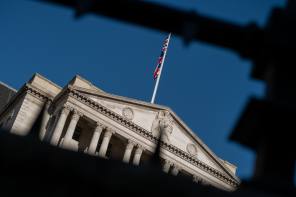

The Treasury Commitee and Bank of England have clashed over the path of monetary policy since the start of the pandemic.
At an evidence session this morning (February 9), bank governor Andrew Bailey was asked how the public can have confidence that the BoE made the right judgements in the past 18 months given the high level of inflation in the UK economy.
Bailey clashed with committee chair Harriett Baldwin, over whether inflation, currently at 10.5 per cent, is a result of first or second round effects, and whether the BoE was wrong to wait for the furlough scheme to end in autumn 2021 before raising interest rates.
Inflation has sat higher than the central bank's target of 2 per cent each month since May 2021.
The central bank has raised interest rates at each consecutive meeting of the monetary policy committee since December 2021.
Bailey highlighted that the MPC anticipates inflation reducing to below 5 per cent this year, due to the unwinding of base effects on price rises.
Base effects are the impact of a previous year’s prices on the current year’s inflation, and secondary effects are when price rises are passed on to consumers by companies.
Baldwin said: “You will forgive the committee for being slightly sceptical of those projections given how often we have seen those projections turn out to be incorrect."
She added that it is the bank’s job to not let inflation get high as opposed to only bringing it down once it has risen.
“How can people feel confident that the bank has made the right judgements at the right time?” she asked.
Bailey emphasised the MPC's confidence that there is a "very large amount” of first round, or base, effects in the system at the moment, and the unwinding of these this year will be “powerful”, which will bring inflation back down to below 5 per cent.
He acknowledged that the central bank has its largest upside risk skew it has ever had on its inflation forecasts, and the inflation rate will only come down if there is no unexpected event this year, particularly around energy prices.
“We do not make policy with the benefit of hindsight,” he said.
Waiting for furlough
Part of the disagreement was over whether the Bank should have raised interest rates in Autumn 2021.
At the time, the bank waited until the furlough scheme had ended before tightening monetary policy over concerns the scheme's close would lead to an increase in unemployment.
However, Baldwin referred to a document written by Huw Pill, chief economist at the central bank, in which he said, looking back, he should have paid more attention to the information being filtered through to the bank from its network of agents, who said the labour market was tight and employees were able to negotiate higher wages as a result.
A tight labour market and wage rises push inflation up.
“At that time we faced a very uncertain and specific environment the labour market associated with the end of the furlough scheme," Pill said.
He said he weighed up whether to focus on the agents’ reports, or whether to look at the official data which was showing about 750,000 jobs were being supported by the furlough scheme.
“At the time, I thought we probably need to see, post the end of the furlough, how those 750,000 furlough jobs play out, in terms of the survey data, agents’ reports and official data," he said.
“I particularly put weight on the official data which did not come out until the end of November.”
Pill said he was concerned the BoE would make a policy mistake if it acted without having all the information.
The MPC did not expect so many people would decide to leave the labour force voluntarily after the end of the furlough scheme.
In addition, Silvana Tenreyro, external member of the MPC, highlighted the outsized impact energy prices have on the rate of inflation.
Of the 11 per cent inflation seen in markets last year, around 8 percentage points were down to energy price inflation, she said.
“To meet the inflation target in 2022 we would have needed deflation in the services sector of 15 per cent.
“This requires a massive recession.”
sally.hickey@ft.com



